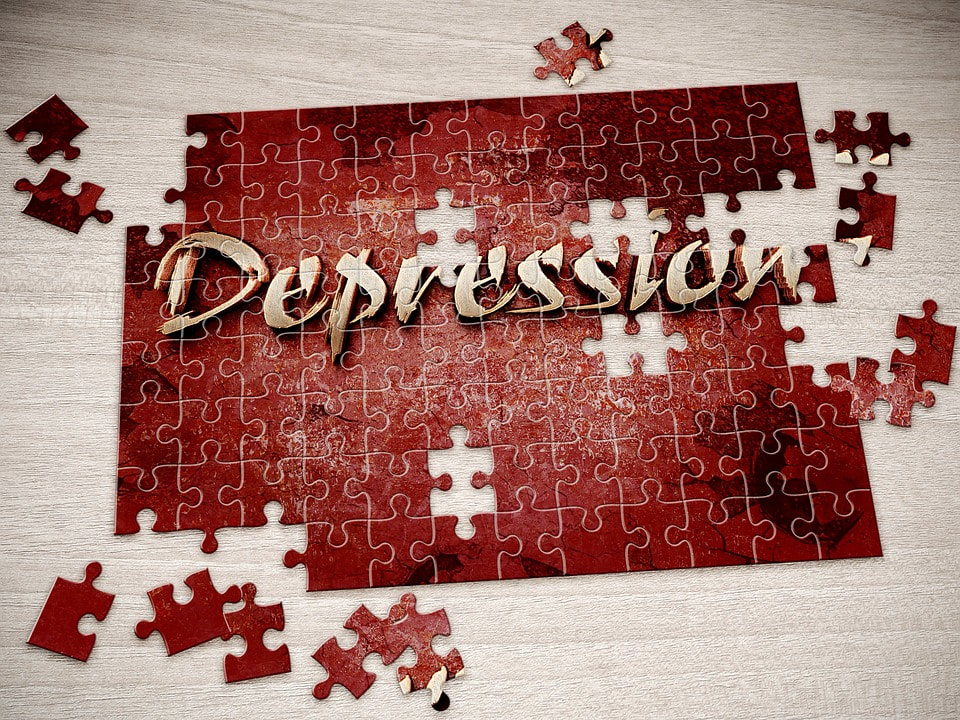Changing Perspectives Blog |
|
Imagine you wake up one morning to an incessant knocking on your front door. You peel yourself out of bed in a groggy stupor, wondering what kind of surprise awaits you on the other side of the door. As you pull open the door, your heart sinks.
There on the doorstep stands your old friend, Mr. Depression. He came without warning. No letter. No phonecall. No email. Not a single little heads up. Even though you are very familiar with Mr. Depression and knew that he could be deciding to visit you again at any moment, you weren't expecting him. Not today. Not now. Yet, here he is, standing on your doorstep with his suitcase in his hand. In an instant, everything changes. Mr. Depression breezes by you and barges into your house, bringing with him a dark, heavy cloud that he places directly above your head. That old familiar feeling of self-loathing, hopelessness and dread starts to fill your mind. A heaviness grows in the pit of your stomach while a tightness creeps across your chest. That negative soundtrack in your mind kicks in and you can feel yourself sinking into a dark area. In a panic, you start to ramble off a few questions for Mr. Depression:
Mr. Depression stays silent and simply stares back at you. He knows that you already know the answers to your questions. As you reflect back on the weeks leading up to this unexpected visit, you might be able to identify some triggers or warning signs; some clues that Mr. Depression was on his way for a visit. Maybe you were overworked. Maybe there was some additional financial stress in your life. Maybe there were some relationship conflicts. Maybe the weather was lousy. Maybe your nutrition and exercise patterns were off. Or, maybe there were no signs. Sometimes the reasons for Mr. Depression's visits are rooted in our childhood experiences or are the result of trauma. Sometimes Mr. Depression visits us because of life adjustments and losses. Sometimes Mr. Depression is an old family acquaintance who has been passed from generation to generation. Sometimes Mr. Depression shows up for no reason at all. Yet, there he is, in your life. In your house. Regardless of his origins, Mr. Depression has visited you many times before today. Sometimes he stays for just a day or so but sometimes his stays can be lengthier. When he arrives, he never tells you how long he is going to stick around. Mr. Depression is a terrible houseguest. He is demanding, consuming and completely attached to your hip. He follows you around everywhere you go: to work, places with your children, out with your friends, to the grocery store, in the car. Everywhere. He saps your energy and leaves you feeling completely empty. The longer he is here, the more effort it takes for you to do previously simple tasks like answering texts, getting out of bed, exercising, eating, even brushing your teeth or putting on a bra. Mr. Depression makes everything significantly more challenging and the whole time he is here, he is whispering awful things into your ear - he thinks you are a terrible person; he thinks you are ugly; he thinks you are a bad parent and an awful friend; he thinks you are a failure. The longer he sticks around, the more you start to believe his words. Often when Mr. Depression comes to visit, you try your best to keep his visit a secret. You don't want your friends to know about your new house guest. Afterall, they might think you are crazy. They might think you are just looking for attention. They might not understand why you can't just grab Mr. Depression's suitcase, toss it out into your front yard and give Mr. Depression a good shove out the front door. They might ask why you can't simply choose to have a visit from Mr. Happy or Mr. Grateful instead. And while you know that your friends will mean well, their questions and advice will probably only tighten Mr. Depression's grip on your life right now. So, you settle in and try to do the things that have made Mr. Depression leave in the past. Perhaps you adjust some medications, take some trips back to psychotherapy, focus on increasing your coping strategies, increase your self-care efforts and lean on people who are supportive and won't judge you. Over time, like always, Mr. Depression eventually starts to loosen his grip on your life. He stops following you everywhere and eventually one morning you wake up and find that he has left your house in the middle of the night. Of course, he always leaves things behind; little reminders that he was there and that he could be back at any moment. But what is this visit from Mr. Depression like for the people on the outside, the people unaware of his arrival? For them, they often witness significant changes in their friend; perhaps overnight or perhaps gradually. Their once cheerful, outgoing friend now appears grumpy, irritable and sometimes non-responsive. Texts and phone calls to the friend go unanswered. They begin declining or canceling plans to get together. On the rare occasion that they do engage in social activities, they are a bit of a drag as they talk badly about themselves and focus on the negative. Even their physical appearance seems different. Their social media account activity changes. Friends might think they are being iced out of relationships, that their friend has suddenly become bitchy and uninterested or that it takes too much energy to be around their friend now. All of this means that by the time Mr. Depression finally leaves, he may have already caused some significant damage to relationships. So, how can we minimize that chances of Mr. Depression destroying our relationships? One good start is to be honest. For those of you dealing with the unexpected visits from Mr. Depression, consider being honest with those people closest to you. They will notice the changes in you anyways- help them to see what is at the root of these changes. Educate them about your experiences with depression and teach them about what you need in terms of support. If you are struggling with depression and would like additional support, please review The Depression Toolkit. For friends of someone who might be struggling, be supportive and resist the urge to pass judgement. Remember that the vast majority of individuals would much rather Mr. Depression not be a part of our lives. It's not a choice they make for attention or sympathy or medication prescriptions; It's just part of them. Holding space and providing support for someone with depression can be emotionally exhausting so remember to take care of yourself during those times as well. For additional resources for family and friends, please visit the University of Michigan Depression Center. For more articles on mental health, depression and self-care, click on the following links:
0 Comments
Your comment will be posted after it is approved.
Leave a Reply. |
About Changing PerspectivesI often find myself encouraging people to consider changing their perspective or reframe the way in which they view things. This blog is an extension of that practice and is also an opportunity for me to write from a number of different perspectives including clinician, educator, mother, friend and supervisor. Blog topics are also quite varied and changeable. Topics explored include, but are certainly not limited to, grief, parenting, health and wellness and relationships. Join me and explore a number of changing perspectives! Categories
All
Archives
April 2020
|

 RSS Feed
RSS Feed




